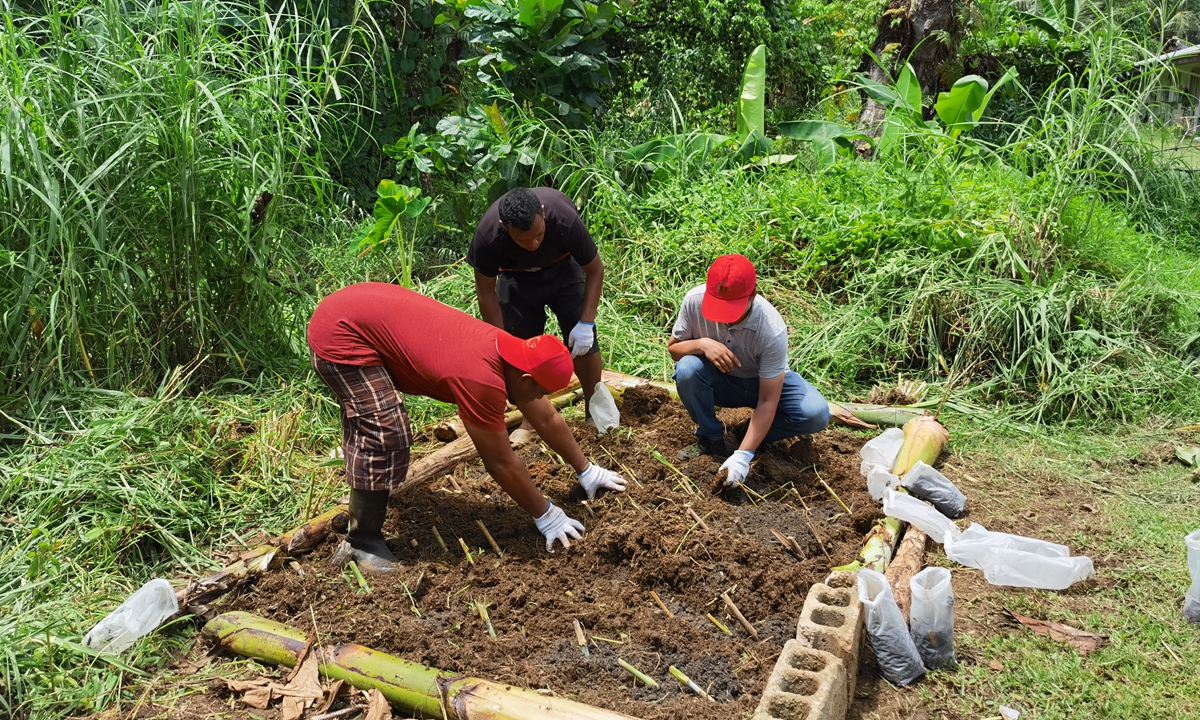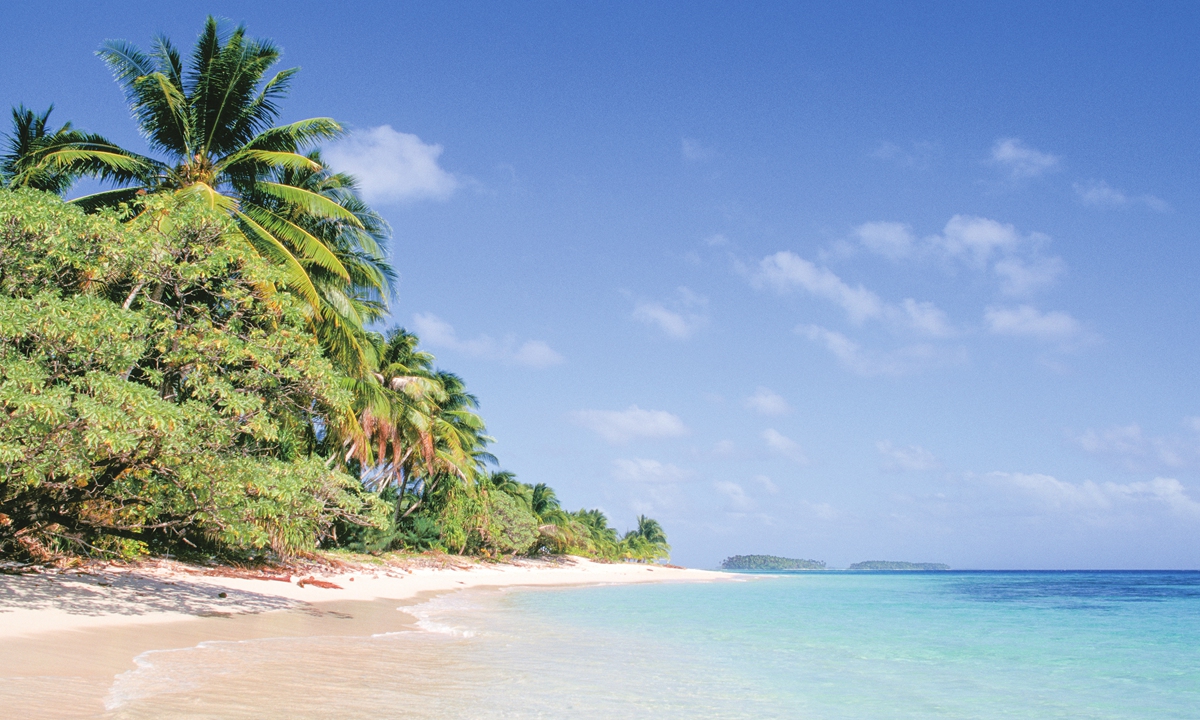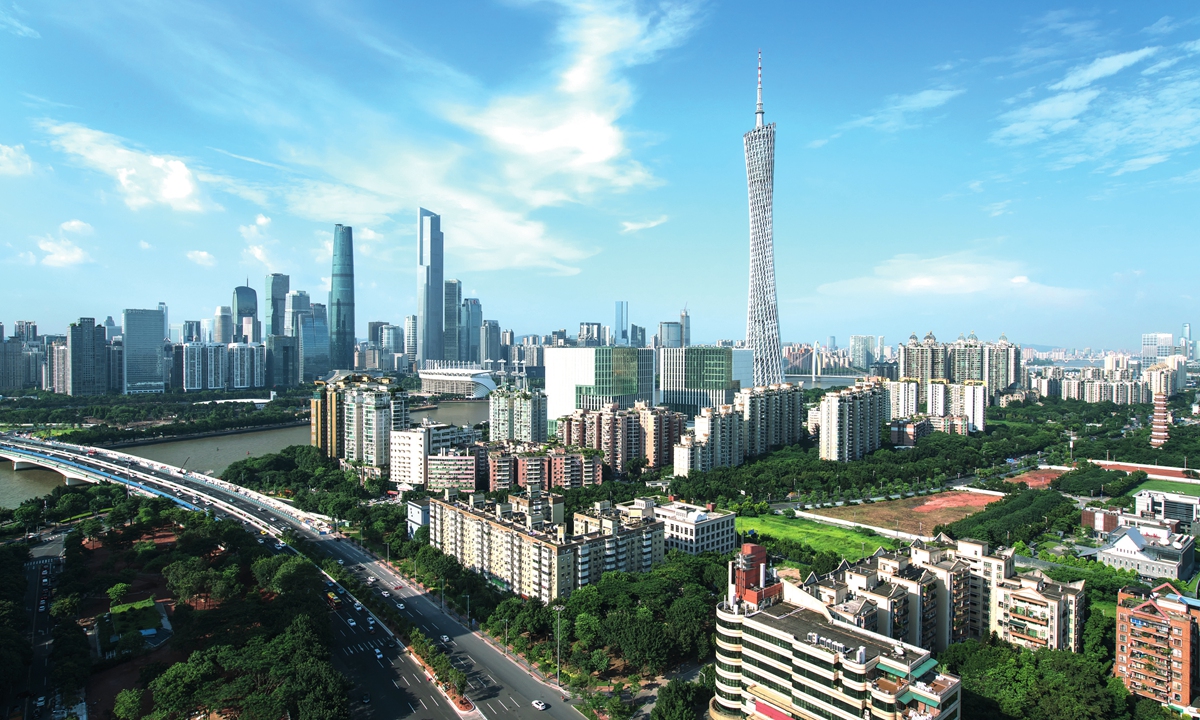Closer collaboration between China, Micronesia sees progress in agriculture, infrastructure, tourism and green technology
China provides help in agriculture, infrastructure, tourism, green technology: experts

A Chinese Juncao expert collects local wild Juncao and teaches locals how to propagate and conserve Juncao seeds. Photo: Courtesy of Fujian Agriculture and Forestry University
As this year marks the 35th anniversary of the establishment of diplomatic ties between China and Micronesia, President of the Federated States of Micronesia Wesley Simina is currently on a state visit to China from April 5 to 12.
According to a joint statement issued by the two countries on Wednesday, China welcomes Micronesia to join in the high-quality Belt and Road cooperation and is willing to work with Micronesia to expand practical cooperation in areas including fishery, infrastructure, tropical planting, aviation and maritime transportation, as well as green and low-carbon development.
The two sides agreed to expand exchanges and cooperation in fields such as education, health, human resources, tourism, and media, the statement read.
In November 2018, China and Micronesia signed a Memorandum of Understanding under the Belt and Road cooperation framework, embarking on a new chapter of deepening cooperation. In recent years, the two countries have reaped a number of fruitful achievements under the Belt and Road Initiative (BRI), in sectors including agriculture, economy and trade as well as climate cooperation.
Pragmatic partnership
Juncao, which in Chinese literally means "mushroom" and "grass," is one of the vivid examples of the bilateral pragmatic cooperation, as the specific farming technology puts in place foundations for a bright future for mushroom growers and livestock companies across the island nation.
Some 100 countries, many of them located in the Asia-Pacific, have engaged in Juncao cooperation with China over the past two decades, according to Chinese experts.
In November 2019, Lin Dongmei, deputy director of the China National Engineering Research Center of Juncao Technology under the Fujian Agriculture and Forestry University, arrived in Micronesia for a research, visiting officials of Kosrae State to promote Juncao technology.
In Kosrae, Lin visited local agricultural research stations and farm fisheries to investigate local agricultural resources, and signed an agreement on Juncao technology cooperation.
Lin told the Global Times on Thursday that in September 2023, two Chinese Juncao technology experts arrived in Kosrae to implement the technology, such as organizing two training courses for 64 local trainees.
According to Lin, on September 20 last year, Juncao technology experts paid a visit to the governor of Kosrae, Tulensa Palik. The governor said that after the COVID-19 pandemic, the cooperation between the two countries will continue to expand in a wide range of fields, and the experts will fully support Juncao technology to take root in Kosrae.
"In the second half of 2024, two Chinese experts will be deployed to Micronesia to continue the implementation of the Juncao technical assistance project, which will establish a small technology demonstration and production base in Kosrae, training local technicians and farmers, and familiarize locals with the Juncao technology," Lin said.
In addition to agricultural technology cooperation, China has implemented a series of cooperative projects across many island countries in the South Pacific under the framework of the BRI, including highways, bridges, stadiums, office buildings and schools.
Among them, the secondary highway built with Chinese financial aid in Pohnpei State has been hailed as the "best highway" in Micronesia by locals with a stadium built with Chinese assistance becoming a local landmark now.
Important projects
At the same time, the Chinese side is working closely with the local government to carry out important infrastructure projects in the fields of disaster prevention and mitigation, gasification, agriculture and health care, which are expected to greatly enhance the well-being of local residents.
"Compared with the Western countries, China focuses more on the support of the sustainable development in the island countries, which will directly help improve local production and the residents' daily life," Lin said.
"In addition to creating large number of jobs for local residents through the projects under the BRI, we also pledge to cultivate local talent to promote the technological sustainability," Lin said.
During the past several years, China has provided a great deal of assistance to Micronesia without any political conditions attached, and China has never sought private gain or to create the so-called sphere of influence," said Wang Peng, an associate research fellow from the Beijing Academy of Social Sciences, in an interview with the Global Times on Thursday.
However, aid from the US and other Western countries is often accompanied by conditions and requirements that may make the recipient country feel pressurized and constrained. While at times such assistance can be of some help, in the long run it may interfere with the internal affairs and decision-making processes of the recipient country, Wang added.
After Simina's China trip, the two countries are eyeing closer collaboration in fields of agricultural technology, tourism and infrastructure construction, Wang said.
Notably, the pragmatic cooperation of the two countries has set a good example for other island countries, as China has always been committed to maintaining the principle of mutual respect to achieve win-win results through collaboration, Wang said, adding that China has provided a good number of developing countries with a fairer environment for development, which has contributed to global justice and helped narrow the global gap.
Lately, a number of leaders of Pacific Island countries visited to China, including Nauru and Micronesia. Mao Ning, spokesperson from China's Foreign Ministry said on Wednesday that China and Pacific Island countries boast a long history of cooperation. "Our cooperation serves the common interests of the two sides and is welcomed by the governments and people of Pacific Island countries," she said.
"China fully respects the Pacific Island countries' sovereignty and independence, and their will, cultural traditions and efforts to seek growth through unity," Mao said.
China will continue to work with Pacific Island countries under the principles of mutual respect, equal-footed consultation, win-win cooperation, openness and inclusiveness, to bring more benefits to the people of the island countries, promote development and revitalization of island countries, and advance peace, stability, development and prosperity in the region, the spokesperson said.


